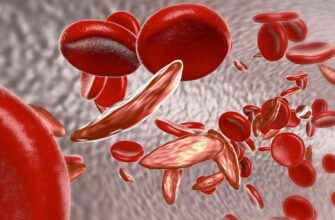Leaky heart valve, also known as mitral valve regurgitation, is a condition where the mitral valve in the heart fails to close properly, allowing blood to leak backward into the left atrium. This can lead to a range of symptoms and complications, but with proper diagnosis and treatment, most people with a leaky heart valve can lead a normal life. In this article, we will discuss the symptoms, causes, and treatments for this condition.
Symptoms of Leaky Heart Valve
The symptoms of a leaky heart valve may not be noticeable at first, and the severity can vary from person to person. Some of the most common symptoms include:
- Shortness of breath, especially during physical activity
- Fatigue
- Swelling in the feet or ankles
- Irregular heartbeat or palpitations
- Chest discomfort or pain
- Dizziness or lightheadedness
If you experience any of these symptoms, it is important to see a doctor to determine the underlying cause.
Causes of Leaky Heart Valve
The most common cause of a leaky heart valve is mitral valve prolapse, a condition where the valve leaflets bulge back into the left atrium during the heartbeat. Other causes may include:
- Endocarditis, an infection of the heart valves
- Rheumatic fever, a complication of untreated strep throat
- Congenital heart disease, a defect present at birth
- Heart attack or other heart conditions
- Age-related wear and tear on the valve
Diagnosis of Leaky Heart Valve
To diagnose a leaky heart valve, your doctor may perform a physical exam, listen to your heart sounds, and order imaging tests such as an echocardiogram, which uses sound waves to create images of your heart. Other tests such as electrocardiogram (ECG) or a stress test may also be recommended.
Treatments for Leaky Heart Valve
The treatment for a leaky heart valve depends on the severity of the condition, and whether or not it is causing symptoms. In mild cases, regular monitoring may be all that is necessary. In more severe cases, treatment options may include:
- Medications such as diuretics, ACE inhibitors, or beta-blockers to manage symptoms
- Surgery to repair or replace the valve
- Minimally invasive procedures such as catheter-based valve repair or replacement
Preventing Leaky Heart Valve
While not all causes of a leaky heart valve can be prevented, there are steps you can take to reduce your risk, such as:
- Maintaining a healthy weight
- Eating a balanced diet
- Exercising regularly
- Managing conditions such as high blood pressure and high cholesterol
- Avoiding tobacco and excessive alcohol consumption
Lifestyle Changes for Leaky Heart Valve
In addition to medical treatment, lifestyle changes can help manage the symptoms of a leaky heart valve, including:
- Limiting salt intake to reduce fluid retention
- Quitting smoking
- Managing stress through techniques such as meditation or yoga
- Getting enough sleep
- Engaging in light to moderate physical activity such as walking or cycling
Living with Leaky Heart Valve
While a leaky heart valve can be a serious condition, many people are able to lead a normal life with proper treatment and management. Regular follow-up appointments with your doctor are important to monitor your condition and adjust your treatment plan as needed.
When to Seek Medical Help
If you experience any symptoms of a leaky heart valve, it is important to seek medical help right away. Additionally, if you have been diagnosed with a leaky heart valve and notice any changes in your symptoms, it is important to inform your doctor.
Complications of Leaky Heart Valve
If left untreated, a leaky heart valve can lead to serious complications, including:
- Heart failure, a condition where the heart is unable to pump enough blood to meet the body’s needs
- Pulmonary hypertension, a type of high blood pressure that affects the lungs
- Stroke, a blockage or bleeding in the brain
- Endocarditis, an infection of the heart valves
Outlook for Leaky Heart Valve
The outlook for people with a leaky heart valve depends on the severity of the condition and how well it is managed. With proper diagnosis and treatment, most people with a leaky heart valve can lead a normal life. However, it is important to work closely with your doctor to manage your condition and prevent complications.
Conclusion
Leaky heart valve, or mitral valve regurgitation, is a condition where the mitral valve in the heart fails to close properly, allowing blood to leak backward into the left atrium. While the symptoms can vary from person to person, it is important to seek medical help if you experience any of the common symptoms such as shortness of breath, fatigue, or chest discomfort. With proper diagnosis and treatment, most people with a leaky heart valve can lead a normal life. Maintaining a healthy lifestyle, managing underlying conditions, and following your doctor’s recommendations can help manage the symptoms and prevent complications.











